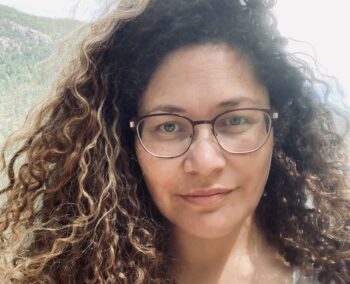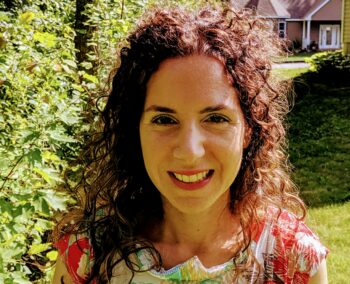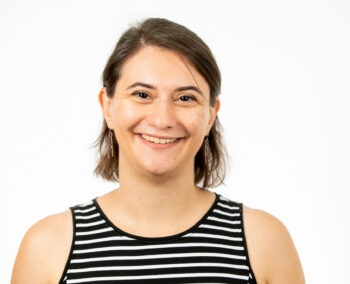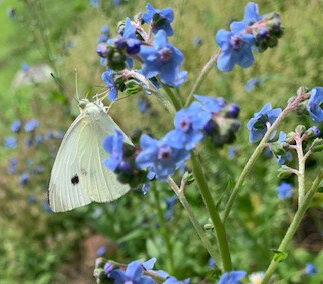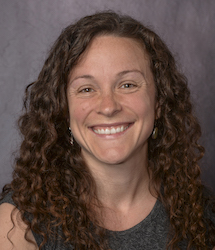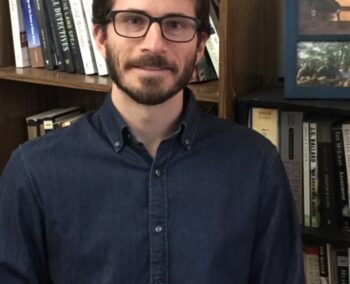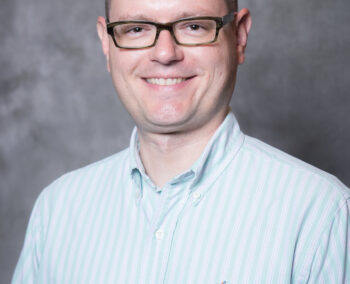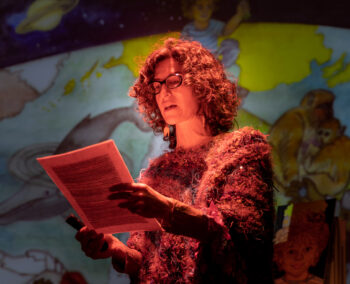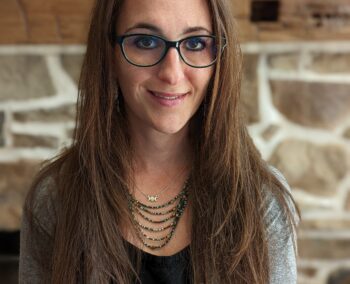Azucena Castro: June 2023 Scholar of the Month
ASLE’s Scholar of the Month for June 2023 is Azucena Castro.
Azucena Castro is a Swedish Research Council Postdoctoral Fellow at Stockholm Resilience Center, Stockholm University. She is also a Visiting Researcher at the Department of Iberian and Latin American Cultures, Stanford University, where she collaborates with the research group materia. Formerly, Castro was a Postdoctoral Researcher at the Institute of Geography of the University of Buenos Aires, and a member of the Nature, Culture, Territory research group. She earned her Ph.D. at Stockholm ...
Danila Cannamela: May 2023 Scholar of the Month
ASLE’s Scholar of the Month for May 2023 is Danila Cannamela.
Danila Cannamela is an Assistant Professor of Italian Studies in the Department of French and Italian at Colby College. Her research interests include pastoral ecopoetics and the crossroads of environmental humanities, feminist theory, and transgender studies. Her first book, The Quiet Avant-Garde: Crepuscular Poetry and the Twilight of Modern Humanism (2019), examines the precursory role of the crepuscular poetics of the object in repositioning the human and the nonhuman in an anti-hierarchical relation. ...
Sophia Bamert: December 2022 Scholar of the Month
ASLE’s Scholar of the Month for December 2022 is Sophia Bamert.
Sophia Bamert is a Doctoral Lecturer in Composition in the English Department at Brooklyn College—CUNY. She previously was a Postdoctoral Fellow and Lecturer in the Engagements Core Curriculum at the University of Virginia, and she earned her PhD in English at the University of California, Davis, where her dissertation was titled “Plotting Race: Narrative Form and Urban Racial Geographies.” She recently published a reflection on the concept of “plotting race” in the journal ...
Call for Nominees: ASLE Scholar of the Month
In May 2020, ASLE started a new “Scholar of the Month” program featured our website, which was modeled after the Society of Early Americanists’ program of the same name. The purpose is to highlight our members’ innovative research, teaching, community engagement, and other activities. Read about our past nominees and the questions we ask them at the Scholar of the Month pages on the website. We also post these profiles to ASLE Facebook and Twitter.
Now that the program has been successfully established, there ...
Jeffrey Insko: November 2022 Scholar of the Month
ASLE’s Scholar of the Month for November 2022 is Jeffrey Insko.
Jeffrey Insko is Professor of English at Oakland University, where he teaches courses in nineteenth-century American literature and the Energy and Environmental Humanities. He is the author of History, Abolition, and the Ever-Present Now in Antebellum American Writing (Oxford, 2018) and editor of the forthcoming Norton Library edition of Moby-Dick. His essays have appeared in journals and collections such as American Literary History, American Literature, Leviathan, Resilience: A Journal of the Environmental Humanities, and the Cambridge ...
Jada Ach: October 2022 Scholar of the Month
ASLE’s Scholar of the Month for October 2022 is Jada Ach.
Jada Ach is a Lecturer at Arizona State University, where she teaches in the Interdisciplinary Studies and Master of Liberal Studies programs. She is the author of Sand, Water, Salt: Managing the Elements in Literature of the American West, 1880-1925 (2021) and co-editor of Reading Aridity in Western American Literature (2020).
How did you become interested in studying ecocriticism and/or the environmental humanities?
I didn’t set out to study ecocriticism when I started my PhD. ...
Andrew Bishop: September 2022 Scholar of the Month
ASLE’s Scholar of the Month for September 2022 is Andrew Bishop.
Andrew Bishop is currently a PhD candidate at The Ohio State University. He is working on a dissertation that explores representations of leisure in nineteenth-century American literature and culture. He has written ecocritical articles on authors like Arthur Miller, H.G. Wells, and Ernest Hemingway. Prior to pursuing his PhD, he helped to coordinate the Composition program at Hudson County Community College in Jersey City, NJ.
How did you become interested in studying ecocriticism and/or ...
Micah McKay: July 2022 Scholar of the Month
ASLE’s Scholar of the Month for July 2022 is Micah McKay.
Micah McKay is Assistant Professor of Spanish at the University of Alabama. His research focuses primarily on the representation of trash in contemporary Latin American cultural production and attempts to consider the ecological, political, and aesthetic stakes of waste. He is the co-editor of Environmental Cultural Studies Through Time: The Luso-Hispanic World (Hispanic Issues On Line, 2019), and his work has appeared in such venues as Latin American Literary Review, Luso-Brazilian Review, and Revista Canadiense de Estudios ...
Cara Judea Alhadeff: June 2022 Scholar of the Month
ASLE’s Scholar of the Month for June 2022 is Cara Judea Alhadeff.
Dr. Cara Judea Alhadeff is former professor of critical philosophy and corporeal politics at University of California, Santa Cruz, and is currently an independent scholar and eco-justice performance artist. She is the author of the critically-acclaimed Zazu Dreams: Between the Scarab and the Dung Beetle, A Cautionary Fable for the Anthropocene Era (Eifrig Publishing, 2017) and Viscous Expectations: Justice, Vulnerability, The Ob-scene (Penn State University Press, 2014), as well as numerous essays on environmental justice, greenwashing, ...
Ashley Kniss: May 2022 Scholar of the Month
ASLE’s Scholar of the Month for May 2022 is Ashley Kniss.
Ashley Kniss is an Assistant Professor at Stevenson University in Owings Mills, Maryland. Her research interests include American Gothic literature, ecohorror, American religious history, apocalypse, and the posthuman. She currently serves as the Writing Coordinator at Stevenson University and has also taught several courses in her focus area of 19th-century American Gothic literature, including surveys on the American Gothic, Monsters in American Literature, and Ecohorror. She is currently working on her first monograph ...

